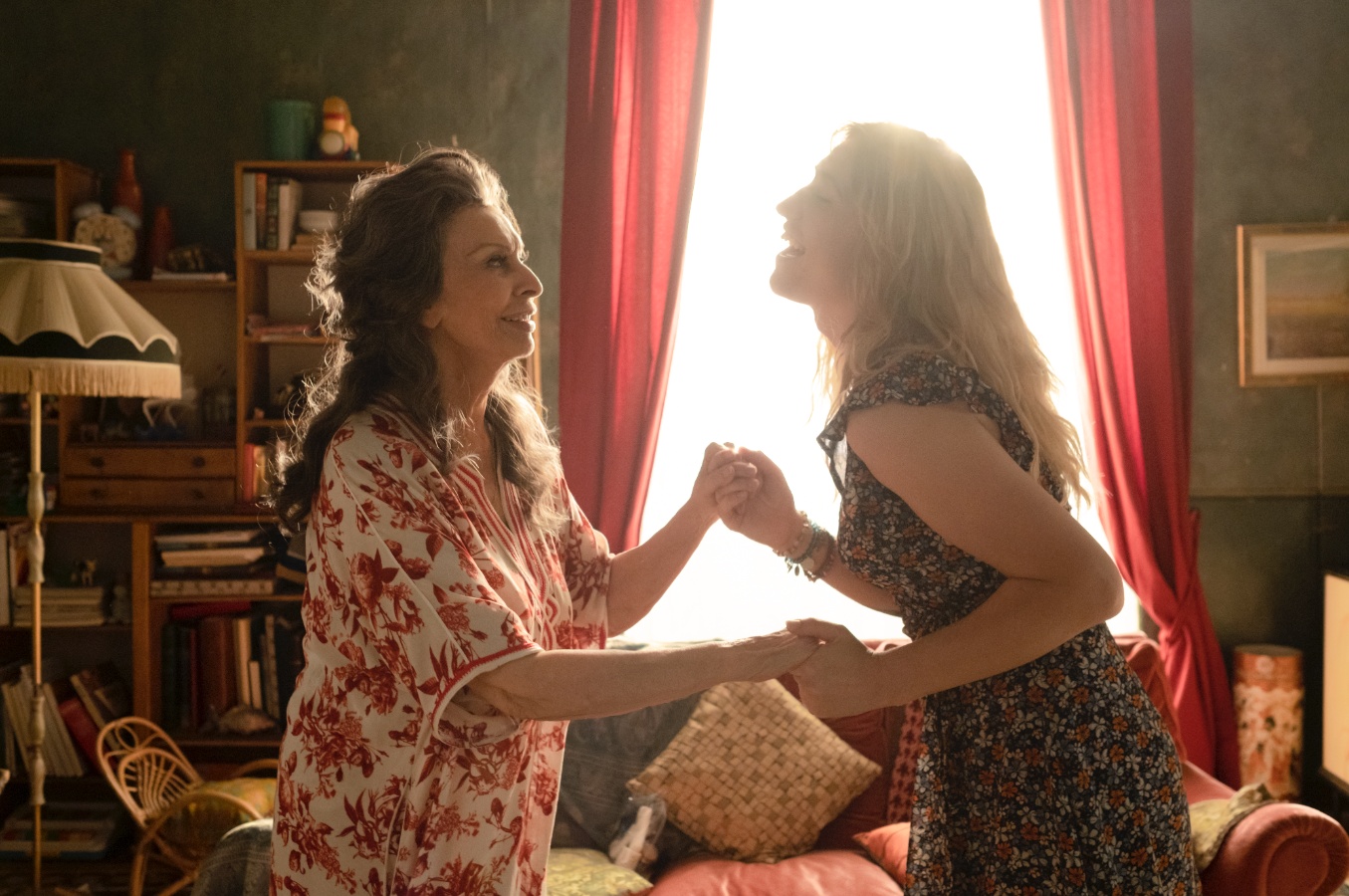Sophia Loren earned her status as a cinema legend through her portrayals of women who were larger than life, yet specific enough, that we felt we might encounter them walking down the street. Her Filumena in Marriage Italian Style conveyed decades of suffering and dedication with a heartbreaking glance; her Giovanna from Sunflower seemed to have created the concept of longing and how to overcome it. And her ferociousness as Cesira — the mother devoted to protecting her daughter at all costs in Two Women — made one believe she could dive into a volcano, and come out unscathed.
The Madame Rosa she plays in The Life Ahead almost belongs in that pantheon of neorealist heroines – Loren favored raw emotion over stylization even in high melodrama. Rosa, a former prostitute turned reluctant caretaker to abandoned children, retains that indomitable essence and feels specific enough because of the way she moves in the world. She can suggest an entire history with a gesture, but the character, and Loren’s detailed work, are in the service of a film that very much feels like a relic.
Based on The Life Before Us by Romain Gary, which has been adapted for the screen and stage in the past, the new film by Edoardo Ponti skips over the fact that it’s been almost 50 years since the novel came out. And sensibilities — when it comes to race relationships — have changed since the time of the source material, but it appears simplistic and tone-deaf in 2020.
The story is told from the perspective of Momo (Ibrahima Gueye), a Senegalese orphan who comes to be under Madame Rosa’s unwilling care. Loren’s character first refuses him, witnessed his petty crimes in the street and fears she’d be welcoming a young criminal, but she lets him stay when Momo’s former guardian, (Renato Carpentieri), raises the fee she’ll collect for looking after the boy.
Rosa is a Holocaust survivor, and in Momo, an unaware Muslim who inherited a religion he doesn’t practice – she encounters an unexpected antagonist. The film which starts as a plea for people to see past their cultural differences, soon becomes an odd couple dramedy, in which Rosa learns as much from Momo as he does from her.
What the film doesn’t explore is the modern historical context and what it does to the dynamic between Loren and Gueye, respectively a white actor playing a Jewish character and a young Black actor of African descent. In the 1970s and today, the conflict that arises from their religions remains. But there is an icky dynamic when it comes to race. That’s especially reflected in how someone like Rosa, who suffered so much due to prejudice, can aim so much resentment at a young refugee who has suffered in equal measure.
When the film asks us to have sympathy for the elderly woman’s treatment of the boy due to her own suffering, The Life Ahead reeks of a white savior narrative, glossing over the treatment of African refugees in Europe and turning Rosa into a character who sees faith, but not color. Perhaps the contrast wouldn’t be as apparent if the film had been set in the past, but in the present, it amounts to a more tasteful version of schmaltz like The Blind Side.
If you’re able to see past this anachronistic dynamic and give in to the film’s message of tolerance, then it has an old fashioned lesson-style delivery. You know from the start that Rosa and Momo will become inseparable by the end. You know the story is meant to elicit tears, and you know you’re supposed to leave with a better understanding of values and the importance of having a dialogue.
If the film doesn’t successfully navigate current politics in the main story, Ponti allows for more nuance in the supporting characters. There’s Lola (Abril Zamora), a transgender sex worker who used to be a prizefighter, and Hamil (Babak Karimi), a sensitive shopkeeper who takes young Momo under his wing to keep him from crime. It’s no surprise that scenes in which Rosa interacts with them are some of the most touching. Loren deploys her sensual charms on Karimi’s receptive Hamil, and her motherly warmth comes through in her quiet moments with Zamora’s Lola.
Overall, the film relies on Loren’s timeless appeal to disregard the complexities of the modern context, remaining efficient as a star vehicle. It’s something that Miramax would’ve released in the late 90s, completely aimed for the heart, but the problem is that it begs the head to take a break to achieve that emotion.
The Life Ahead is now available on Netflix.

